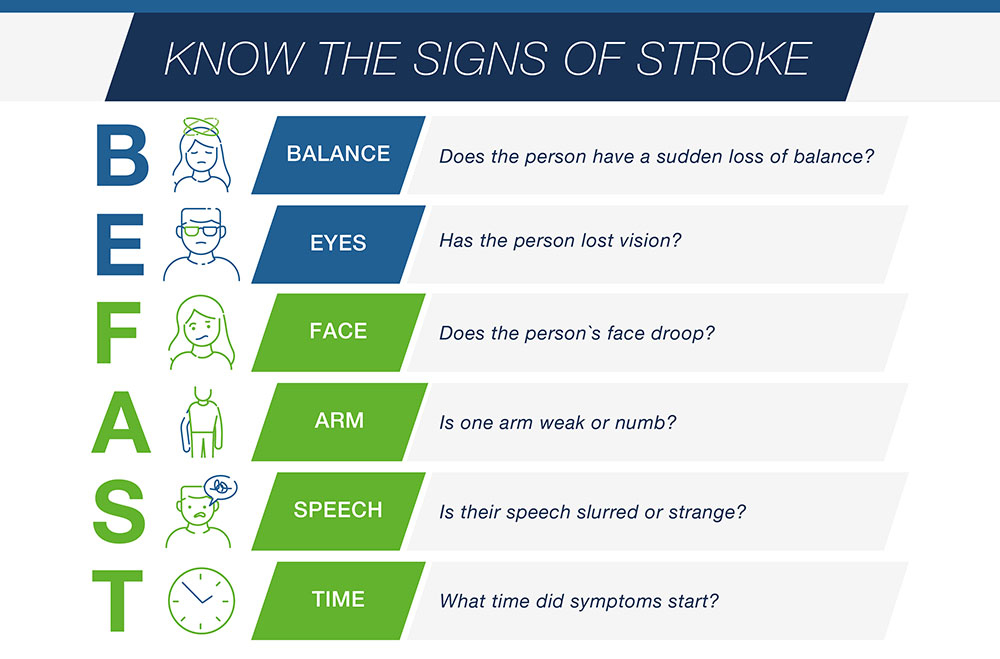Warning Signs & Risks
Minutes Count in Stroke Treatment - Learn to Recognize Signs of Stroke
Stroke is always a medical emergency. It can come on suddenly, at any time and any place. It is important to recognize the signs and get immediate medical attention. Speedy stroke diagnosis and treatment can help dramatically improve recovery from strokes, including a TIA (transient ischemic attack) or mini-stroke.
Five Major Warning Signs of Stroke
- Numbness, weakness, or paralysis of the face, arm, or leg, especially on one side of the body.
- Confusion or trouble speaking or understanding.
- Trouble seeing with one or both eyes.
- Trouble walking, dizziness, or loss of balance or coordination.
- Severe, sudden onset of headache with no known cause.
Recognizing and Responding to Stroke Symptoms
The best way to remember common stroke warning signs is to think of the acronym *“B.E.F.A.S.T.”.
B.E.F.A.S.T. stands for:
- Balance: Sudden dizziness and a loss of balance or coordination
- Eyes: Sudden blurred vision or loss of vision in one or both eyes
- Face: Sudden drooping in one side of the face and a lopsided smile, along with numbness
- Arm: Sudden weakness in one arm with the inability to raise both arms equally
- Speech: Sudden slurred or hard-to-understand speech or the inability to speak
- Time: Call 911 immediately when you or someone else has any of the above symptoms

*BEFAST was developed by Intermountain Healthcare, as an adaptation of the FAST model implemented by the American Stroke Association. Reproduced with permission from Intermountain Healthcare. Copyright 2011, Intermountain Health Care.
Stroke Risk Factors
Some risk factors for stroke, such as being male, being African-American, and having a family history of stroke, are out of your control. But there are others you can do something about. For instance, conditions such as heart disease, atrial fibrillation, high blood pressure, high cholesterol, and diabetes make a stroke more likely. Controlling these health problems may decrease your risk. You can lower your risk by getting regular exercise, eating well, maintaining a healthy weight, and quitting smoking if you smoke.
